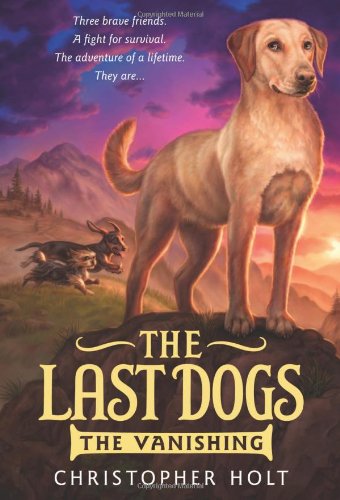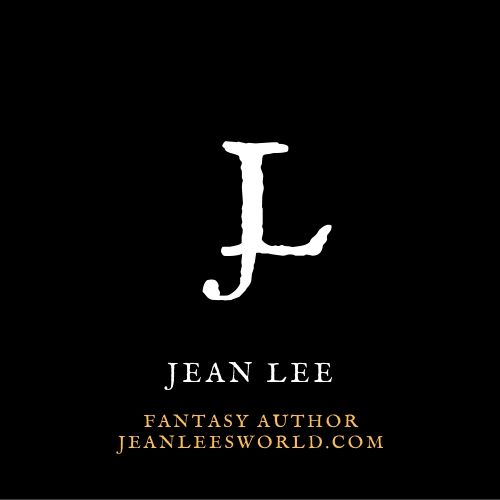Soooooo my puppet plans for the day went so-so. Each kid had a snit at some point: Blondie in making the puppets, Bash in writing his play, and Biff in performing for his family. Still, the kids had TONS of fun at various points of the day creating their robots, rockets, and superheroes. We also took breaks to watch the ultimate puppet show, The Muppet Show. The episode with John Cleese is always a favorite!
I also had a lovely chat with long-time friend, Anne Clare. It always lifts the spirit to connect with an old friend and fellow creative who adventures with teaching and parenting at home as I do. Be sure to stop by her site and say hello!

This week we also found the library that contained the last book to Blondie’s current fav series: Last Dogs by Christopher Holt. She’s found a lot of escape in this series, and I didn’t want to cut off her escape time by missing one of the books.
Escape is very important in times like this, and I hope you each have found that beloved book to transport you out of the current chaos (feel free to share it in the comments below!). I’m excited the stories I’ve written have helped others escape; nothing helps me reset like escaping into my fantasy writing. Diana Wynne Jones also considered fantasy stories to be a delightful bit of escape and adventure for children, but she also reminds writers that fantasy is much more than that for children. Through fantasy, children discover how to be their best selves.
From Writing for Children: A Matter of Responsibility
…many writers, not only those who say imagination drives you mad, get the wrong idea. They assume that because a thing is “made up” it is unreal or untrue (disregarding the fact that any kind of story except the most factual biography is always “made up”). They see a child reading a fairy story, or constructing his or her own fantasy, and they at once conclude that the child is retreating into make-believe simply to get comfort in a melancholy situation.

Fantasy certainly does provide comfort–and who is not entitled to a little comfort if they can get it? For those who need that, it is the mind’s perfect safety valve. But a child reading, say, a fairy story is doing a great deal more. Most fairy stories are practically perfect examples of narratives that fit the pattern of the ind at work. They state a problem as a “what if” from the outset. “What if there were this wicked uncle? That evil stepmother who is a witch? This loathsome monster?” Stated in this way, the problem (parent? bully?) is posed for the widest possible number of people, but posed in a way that enables the reader to walk all around it and see the tights and wrongs of it. This uncle, witch or monster is a vile being behaving vilely. As these beings will invariably match with an actual person: parent, sibling, schoolfellow, what a child gains thereby is a sort of blueprint of society. Reading the story, he or she is constructing a mental map–in bold colors or stark black and white–of right and wrong and life as it should be. Turning to the cruel parent or schoolfellow, where right and wrong are apt to be very blurred, this child will now have the mental map for guidance.
An important part of this mental map is that the story should usually have a happy ending–or at least an ending where justice is seen to be done to villains and heroes alike. This is again part of life as it should be. The mind, as I have said, is programmed to tackle problems, joyfully, with a view to solving them…it is important that the blueprint instructs them to aim as high as possible.
If you bear in mind these responsibilities as you write, you need have no fear that any child will mistake the blueprint for the actual world. Children recognize the proper workings of the imagination when they are allowed to see it and may quite well remember your story, joyfully and gratefully, for the rest of their lives.

As you all continue on your adventures through the fantastic, I hope you’ll take a moment to remember the authors who inspired you with their monsters and warriors, and how those stories brought you here, to your Wyrd and Wonderful place, to create a new world of monsters and warriors to inspire a new generation of readers drawing up their own blueprints to becoming their best, their brightest, their most unique selves.

Read on, share on, and write on, my friends!


Escape—a wonderful, but remote, option.
LikeLiked by 1 person
A writer should always be mindful of her audience. To create the kind of book that a person of any age can lose themselves in, and not necessarily to escape something bad, is a gift. The writer lights the spark of the imagination. What more precious gift is that?
LikeLiked by 1 person
I couldn’t have said it better, Friend! xxxxxx
LikeLiked by 1 person
Fairy tales provide “a sort of blueprint of society “ to children. I never thought of it that way. It’s true!
LikeLiked by 1 person
It’s so true! We learn so much as we read–the yearning to overcome wrong and stand for what’s right.
LikeLiked by 1 person
Puppets and children and so much fun.
LikeLiked by 1 person
They certainly are!
LikeLiked by 1 person
The kids having fun in Wisconsin. That’s a huge gold star for mum today.
I’m currently trying to piece together a story for son (needs to be finished in 30 minutes) with his two fav characters Mr Mole and Mr Cheetah but today meeting the last of the Dodos living in Africa. Unfortunately brain is sidetracked with the race of Carrots led by the Colonel. Going to be a long story.
I always think the best Fantasy is like a brilliant CrossFit workout for the brain. It’s often such an underused muscle. Had a great mental workout the last two nights reading the Night’s Tooth.
LikeLiked by 1 person
I hope the story worked out okay! You honor me with a reread, and you are so right–good fantasy doesn’t let one just coast along. One thinks. One’s caught up and running with the story until they’re too winded and must put the bookmark in.
Hope you’re well. Hugs! xxxxxx
LikeLiked by 1 person
We are ok thanks. Just trying to get my head round the process of son being home till at least September. That means it’s a very small and isolated world for months now. Hope your smiling xxxxxxxx
LikeLiked by 1 person
Oh man…not even school this summer? There’s lots of push to get summer school going–if not in June (likely not June), then surely in July. What measures they’ll have in place, I don’t know but our kids NEED at least some time around their peers.
LikeLiked by 1 person
We have our smiling moments. Lots of yawns, too. 🙂
LikeLiked by 1 person
Been looking at some of the stuff other countries have done to get schools open safely. Disinfecting shoes, face masks to get to school, supervised hand washing, then finger and hand thermal temperature checks (done in seconds), then going into redesigned classrooms. Here it’s just turn up and tell the kids not to socialise at all.
LikeLiked by 1 person
Ugh. But then, no actual plan’s been made for schools here yet, which is no help either. Everyone just keeps speculating while the different state governments just noodle about.
LikeLiked by 1 person
That’s a good start to any day. xxxxx
LikeLiked by 1 person
As befits someone who heard Tolkien lecture (or, rather, mumble) DWJ is clearly a proponent of JRR’s notion of eucatastrophe or what we all know as ‘the happy ending’. All that she writes that you’ve quoted here is absolutely spot on — but then we’re both a teensy bit biased, aren’t we? 🙂
LikeLiked by 1 person
Juuuust a smidge! 🙂 Hee hee, you reminded me of her story about that. It’s like he mumbled on purpose to see how many would go away, and when the class dwindled down to a few (including DWJ) and he realized they weren’t going anywhere….he kept on mumbling. 🙂
LikeLiked by 1 person
I need to get back to this wonderful book. I read some and since it’s on my kindle and I have choices for fiction as well, I would bounce around and come back to it, but now that I can’t go to the gym — which is where I do all my reading, on the elliptical — I haven’t gotten back to it. Soon, I hope!
LikeLiked by 1 person
I hope you can get back to it soon, too. I love that book so much!
LikeLiked by 1 person
What I’ve started doing instead it teaching myself how to play the ukulele! I have a how-to book. 📖 It’s so much fun!
LikeLiked by 1 person
How cool! I’ve a friend who likes posting duets with her husband. Super-cute 🙂
LikeLiked by 1 person
Oh, I am totally not there yet, but maybe in a few months (or years!) 😂
LikeLiked by 1 person
Hee hee! Lookin’ forward to the video you will have to post on your blog someday 🙂
LikeLiked by 1 person
🥳😂🤣
LikeLiked by 1 person
What a shame that Cleese was a Brexiteer. At a stroke he lost my loyalty. A great pity, yet a man with no idea of what the EU means/meant to those of us who had a European identity stolen. Irrelevant in terms of your most splendid post, especially so ‘Fantasy certainly does provide comfort–and who is not entitled to a little comfort if they can get it?’ for that is the place I hide in.
LikeLiked by 1 person
Indeed, don’t we all! I didn’t know that about Cleese–that is a pity. 😦
LikeLike